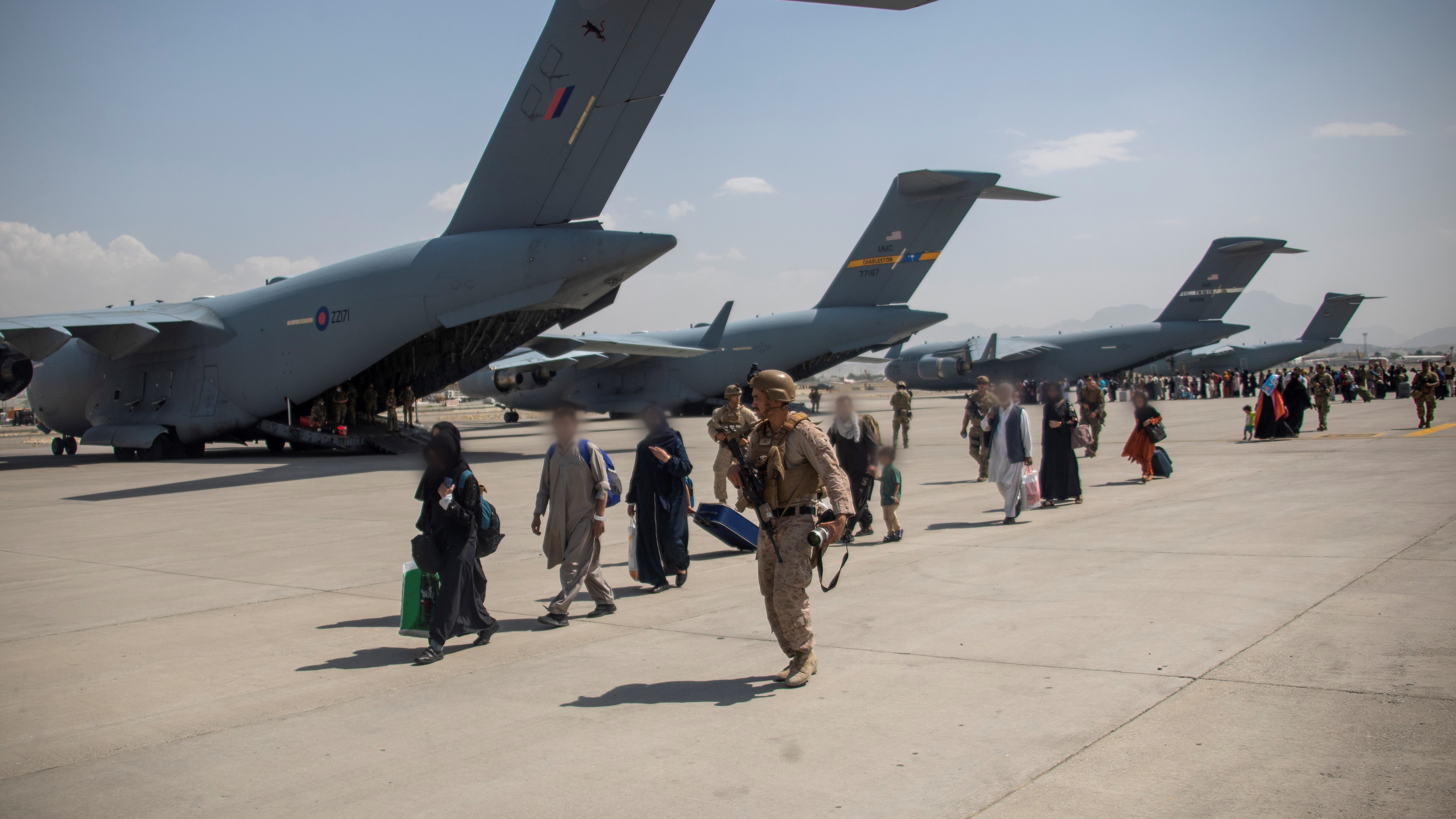
'Not the soldiers' fault': Troops uncomfortable in office role, Op Pitting whistleblower says

Soldiers drafted in to help a Government team responsible for special cases looking to flee Afghanistan this summer had to share a computer screen "between roughly eight people", a whistleblower has said.
In evidence published by the Foreign Affairs Select Committee on Tuesday, Raphael Marshall – who worked for the Foreign, Commonwealth and Development Office (FCDO) during the evacuation effort – detailed how some troops were "likely using Microsoft Excel or Microsoft Outlook for the first time in a professional context".
A damning account describes an FCDO Special Cases team responsible for the cases of those in danger due to links with Britain, despite not working directly for the UK Government, after a Taliban takeover saw thousands flock to Kabul.
- 'Technical issues' hit online Afghan relocation applications system
- Watch: MOD admits third data breach involving vulnerable Afghans
- Watch: Taliban parades through Afghanistan with leftover military vehicles
Soldiers were called in to support the FCDO, issuing Afghan evacuees travel documentation, said Mr Marshall.
This move was "likely" due to a shortage of staff and the ability of others to order the troops to work certain shifts, he said.
Lack of experience meant administrative mistakes were made, he added, including "91 travel documents" being sent from the wrong email accounts, limiting the team's records.
"This was a predictable result of soldiers being asked to perform bureaucratic tasks for the first time in a high-stakes situation without any relevant experience or training," said the whistleblower, adding, "this was not the soldiers' fault".
Initially, there were plans for troops to share a screen between two, but the failure of FCDO IT to provide passwords meant screens were shared between eight, limiting their speed.
"I printed out A3 spreadsheets for the soldiers but this was no substitute for a computer," said Mr Marshall.

"The failure to issue soldiers with sufficient computers for over 12 hours clearly delayed the issuing of travel documents, it will therefore have reduced the chance of selected Afghans being evacuated, and consequently may directly result in the deaths of people unnecessarily left behind."
On 23 August, some soldiers seemed uncomfortable with the task of prioritising Afghan evacuation cases based on emails, the evidence suggests.
"One remarked that he belonged with his comrades in Kabul not processing emails in London."
While consistently refusing to blame personnel in his account, the whistleblower also explained how soldiers had been required to filter cases for evacuation slots by reading down a spreadsheet from top to bottom, due to a lack of alternative guidance.
The approach was described as "arbitrary", but Mr Marshall outlined a deep respect for those serving with the Army.









